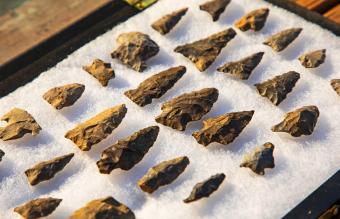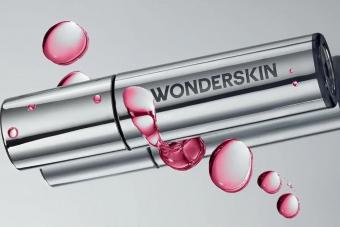
Captivating and distinctive, turquoise is very popular for its relative low cost and beautiful range of colors. While most people are familiar with the rich blues and greens of turquoise, they aren't really sure what to look for when buying jewelry that features this stone. Once you understand the difference between treated and untreated stones, as well as how they are graded, it's much easier to pick out a quality piece of jewelry.
Factors That Affect the Value of Turquoise
Turquoise is a water-based stone that forms in rocks rich in mineral content. The presence of certain minerals in larger quantities imparts a specific color to these stones. The following factors affect the value of turquoise and, ultimately, the cost of any piece of jewelry that includes this gem.
Color
While most turquoise is blue, colors can range from nearly white to some very vivid shades of yellow-green, depending on the location where the turquoise was formed. Some turquoise stones have a fine web of thin lines of the original matrix within the stone. This type of turquoise is called "spider-webbed."
The minerals that may turn turquoise different colors can also change its hardness and quality. Therefore, some of the more collectible and expensive stones are very pale blue or deep green, rather than the more common blue.
Grades
The grade of the turquoise you purchase indicates its quality. The highest quality stones usually come from specific locations, and they're generally given a grade of AA, AAA, or AAAA.
This includes stones that:
- Have bold or unusual colors
- Are able to take a high polish
- Have webbing
AA or higher turquoise is usually more difficult to find. Standard jewelry-grade turquoise merits a grade of AA-, A, B or C. Anything with a lower grade must be treated before being used in jewelry, which generally lowers its price.

Treatments
Unless specified as natural, a lot of the turquoise available in jewelry stores has been treated in some way. Jewelers are actually obligated by law to disclose any and all treatments on the turquoise stones sold, so always be sure to ask if the stones in a piece that interests you have been treated.
- Stabilization - This is the main form of treatment. The stone is treated with an epoxy resin or another substance in order to fill the pores so that the stone retains its color over time.
- Color Enhancement - Sometimes, stones are also treated with chemicals to enhance their colors. Treated turquoise is less expensive than the untreated variety, which can be very expensive depending on its grade.
You can tell the difference between a natural and stabilized stone because a stabilized stone is harder. Additionally, the color is locked by the resin making it unchanging. Natural stone, however, can change color over time. Additionally, natural stone is porous and will absorb moisture and oils, while a stabilized stone will not.
Hardness
Turquoise is reasonably porous and soft when compared to a diamond or a sapphire. While a diamond is a 10 on the Mohs scale, the highest measurement given, turquoise typically ranges from a 2 to a 6. Stones with a score of 2 will be very soft and porous, and will likely need treatment. Turquoise with a score of 6 can be used in jewelry without requiring any treatment.
Pricing
Just like color, grade, and quality can vary tremendously from one piece of turquoise to the next, so can the price of individual stones. Depending upon the location a stone was mined from, its color, and its hardness, pricing can range from a few dollars a carat up to approximately $80 a carat for the more collectible stones.
Howlite vs. Turquoise
Turquoise is a distinctive stone. However, howlite is a white stone with similar black veins. Therefore, it can be dyed to resemble turquoise. To make sure you don't get duped, there are a few things you want to consider.
- Low price: Turquoise is going to be pricier than howlite. So if it seems too good to be true, it probably is.
- Color: Real turquoise is rarely going to have an even color. However, dyed howlite will.
- Rub test: Using acetone, you can try to rub the stone. If blue comes off, it's probably not authentic turquoise.
- Destruction: If you have a large stone you are cutting down, it will be white in the center if it's dyed.

Where to Buy Turquoise Jewelry
You can buy turquoise jewelry from a number of jewelers online. Try these links for some good deals and offers.
- Tiffany & Co. offers online options and a brick-and-mortar building to make your turquoise jewelry purchases. This company has been in business for over 150 years with a long jewelry history.
- Bernardine.com offers a wide range of designer turquoise jewelry pieces with stones sourced in Arizona, New Mexico, Iran and Afghanistan. Most of the pieces are combined with other gemstones, such as opals and emeralds, and set in silver.
-
SilverTribe has several unique turquoise jewelry pieces in Native and Southwestern-inspired styles. This includes chunky necklaces, single-stone rings, and inlaid earrings.
-
Turquoise Jewelry specializes in everything turquoise. They offer turquoise necklaces, rings, and bracelets crafted by Native American artisans.
Care Tips
Since turquoise is less durable than many other gemstones, your jewelry requires a little special care to protect and maintain its original beauty.
- Soft and porous by nature, always protect your turquoise from extreme heat and cold.
- Do not wear turquoise jewelry while doing any heavy work, or when there is an increased risk of knocking the stones against hard surfaces.
- Always clean your jewelry with warm water and a soft cloth. Do not use a commercial jewelry cleaner since the chemicals may damage a stone's surface.
- Store turquoise jewelry separately from other hard stones like diamonds, since rubbing against them may scratch the surface of the turquoise.
Add Some Turquoise to Your Jewelry Collection
Turquoise jewelry can be a unique and refreshing addition to any jewelry collection. Invest in some high-quality turquoise pieces, and they'll retain more value as the years go by.







